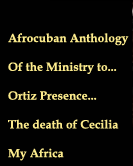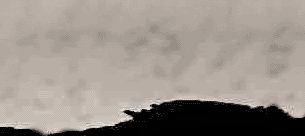




|
The
presence of Don Fernando Ortiz in the
Awo Ifa Omi Otura-ka. Prist of Ifa; Medical Doctor,
Summary He carried out a brief historical review of the causes that impacted in the Cuban Biological-psychological and Social Sincretysm in last century. The most important aspects in Don Fernando Ortiz's work are exposed, in particular those related with their concrete contributions to the study of hypothetical action mechanisms in some psychiatric squares. It is pointed out the contribution of the word and transculturación definition and their influence in the conformation of the Psiquiatría Transcultural in the world. He thinks about the presence of the Dr. Ortiz in the emergence and development of the studies transculturales in our means through Professor's José A. Bustamante figure and their Latin American and world projection. The
influence is pointed out that in the author's vital
and scientific development and of many other Cuban
psychiatrists have its work.
Although it is certain that slaves' abundant figures entered in the XVI, XVII and XVIII centuries, the bigest grow period of the black population of the Island in fact takes place in the XIX century. In their book Slavery, Abolition and author's Julio Ángel Carreras Racism, he tells us: "The XIX century it is conditioned by the African presence in the Island", pointing, Of África arrived in those years stout, intelligent and capable men's thousands for the hardest tasks." For later to alert: "This biological and cultural contribution has not taken into account for many writers", this alert is part of the incentive of the introduction of this work of aiming the causes of the sincrethysm, not only cultural, but also biological and social of the Cuban town and the why, in our opinion, he/she in fact consolidates in the XIX century. The grow of the black population of the Island, didn't belong only to slaves, because they also existed, black libertos or liberate that reached from 36% in 1817 until 37% in 1860; evenly they were increased in the Island the native targets of Cuba that were devoted to the fundamentally agricultural tasks, with what is not difficult to suppose that for psychological and economic similarities they mixed profusely. Don Fernando Ortiz tells us in his work The Black Sorcerers": "The welding was complete, not only psychological, but also physiologic, because so that this he/she was carried out they were the same concausas, equally extensive the intimate and permanent contact at the same time." Aiming the frequent thing in that time of durable unions between white and black. It is also in this century that the fight begins with the abolition in wich participate equally white, wealthy some of them and black, black free and black slaves' proprietors, what culminates in the fights for the independence of Cuba in wich combatted together; to deepen more in these aspects of the fight would move us away from the objective of our work. On the other hand, to the dominant Creole bourgeoisie it interested him to impose their religious ideology, the Catholicism, as classist expression to the whole population and in particular, he/she wanted from the beginning, to catholicize, to convert to the Catholic faith to the black ones that brought from their lands their own expressions and cultures; developed and learned according to their rules but completely different and demoniacal and pagans according to the Catholic mythical cosmovisión.
|






